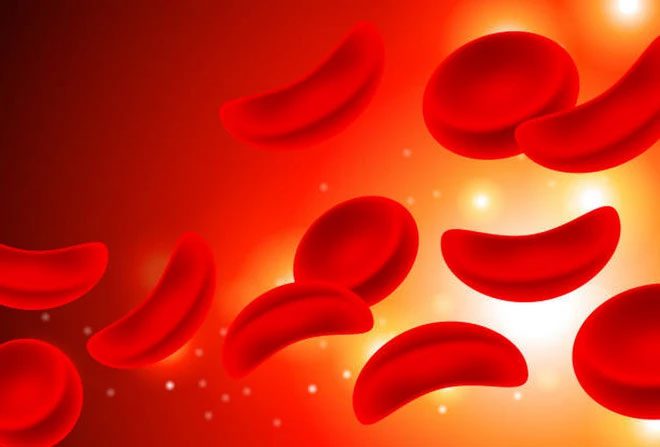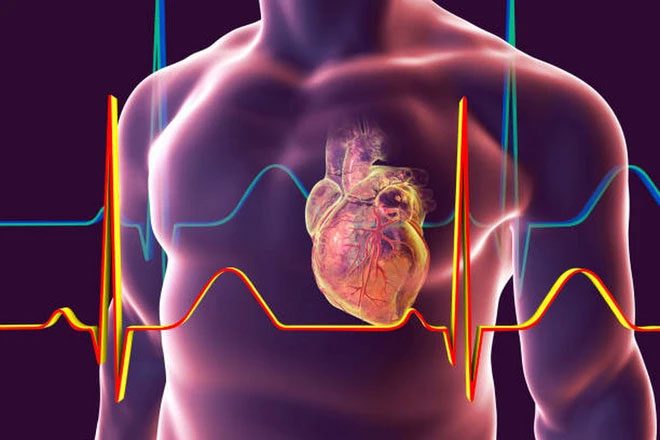Depression is a mental health disorder that causes prolonged feelings of fatigue, sadness, loss of interest, and mood disturbances, disrupting daily habits and leading to negative thinking.
Important Information About Prolonged Fatigue
Prolonged fatigue, also known as chronic fatigue, is a condition that commonly occurs in individuals with high workloads, prolonged stress, and anxiety.

If fatigue persists, it may be a sign of an underlying medical condition. (Source: Getty Images)
Typically, if fatigue is due to stress, anxiety, insomnia, or mild acute illnesses, it will resolve quickly once the underlying cause is addressed. Consequently, many individuals tend to dismiss their feelings of fatigue, believing it will dissipate with rest or by using tea or coffee to suppress these feelings.
However, if fatigue persists, it could indicate the onset of a medical condition, making it critical to investigate the causes to help treat the issue.
1. What are the symptoms of prolonged fatigue?
Identifying and distinguishing prolonged fatigue from typical fatigue symptoms is relatively straightforward, primarily based on the duration and persistence of feelings of exhaustion and disinterest in each individual.
According to research institutions, prolonged fatigue, also known as chronic fatigue syndrome, can be diagnosed through common symptoms such as persistent fatigue lasting six months or more, significantly affecting the individual’s life, mental state, and overall quality of life.

Prolonged fatigue is also known as chronic fatigue syndrome. (Source: Getty Images)
Feelings of prolonged fatigue may accompany other symptoms such as extreme tiredness even with minimal physical activity, unexplained joint pain, sore throat, body aches, swollen lymph nodes in the armpits or neck, and an exacerbation of fatigue after waking up.
If five or more of the aforementioned symptoms appear alongside fatigue lasting over six months, it is advisable to visit a hospital for an evaluation, as the likelihood of having chronic fatigue syndrome is high.
After a clinical examination based on symptoms, doctors may further assess other characteristics for diagnosis.
2. Could it be a sign of an underlying medical condition?
Although prolonged fatigue may not severely impact daily life, it could signal the onset of an underlying medical condition. Therefore, it is essential to seek the cause. Below are common medical reasons that can lead to prolonged fatigue.
Anemia
Anemia reduces oxygen supply to the cells and impairs metabolic processes. Individuals with anemia experience prolonged fatigue, dizziness, exhaustion, lethargy, and a lack of energy for studying or working.
Additionally, anemia may cause loss of appetite, insomnia, difficulty falling asleep, restless sleep, hair loss, tinnitus, abdominal pain, cold extremities, and irregular heartbeat. The most common type of anemia is iron deficiency anemia.

Anemia reduces oxygen supply to the cells and impairs metabolic processes. (Source: Getty Images)
Respiratory Issues
Acute respiratory conditions such as the flu, cold, bronchitis, or pneumonia can make patients feel fatigued throughout the day. However, this condition typically lasts only a short time and resolves as the illness improves.
In contrast, chronic respiratory diseases such as asthma, chronic obstructive pulmonary disease, pulmonary fibrosis, and collapsed lung hinder respiratory function and gas exchange over an extended period. Thus, individuals with these conditions often experience shortness of breath and chronic fatigue.
Diabetes
People with diabetes have high blood glucose levels, causing the body to expend significant energy to regulate blood sugar levels. Therefore, diabetes is a crucial consideration when experiencing chronic fatigue.
Common symptoms of diabetes include fatigue, constant hunger, excessive thirst, frequent urination, weight loss, vision impairment, and irritability. Among these, fatigue is the first, most prevalent, and longest-lasting symptom.

People with diabetes experience common symptoms such as fatigue and constant hunger… (Source: Getty Images)
Cancer
Fatigue due to cancer is a form of chronic fatigue caused by multiple factors. Cancer alters hormone levels, weakens muscles, and damages multiple organs such as the heart, liver, kidneys, or lungs, all contributing to prolonged fatigue.
Additionally, pain, anemia, and side effects from cancer treatments (medications, chemotherapy, radiation) also lead to continuous fatigue for patients.
Thyroid Disorders
When afflicted with thyroid disorders, particularly hypothyroidism, the thyroid hormones function ineffectively, disrupting metabolic processes, causing persistent fatigue.
Cardiovascular Issues
Chronic fatigue is also a common symptom of congestive heart failure. Heart failure weakens the heart’s ability to pump, leading to inadequate blood flow to organs and tissues, resulting in constant fatigue. This condition worsens with physical exertion. Other symptoms of heart failure include shortness of breath, rapid breathing, and swelling in the legs and arms.

Other symptoms of heart failure include shortness of breath, rapid breathing, swelling in the legs and arms… (Source: Getty Images)
Adrenal Insufficiency
Adrenal insufficiency is a condition that causes prolonged fatigue, albeit less frequently than thyroid disorders. In addition to fatigue, adrenal insufficiency can cause headaches, diarrhea, abdominal pain, weight loss, and increased skin pigmentation.
Tuberculosis
This condition is primarily caused by bacteria, which can severely damage the cells and tissues they come into contact with. For individuals with tuberculosis, feelings of despair and physical pain, weakness, and fatigue exacerbate the symptoms of prolonged fatigue, leading to insomnia, sleep disturbances, and depression.
Nervous Exhaustion
Nervous exhaustion is a relatively serious condition, often resulting from prolonged stress and pressure. Individuals with nervous exhaustion not only frequently feel fatigued but are also prone to anger, irritability, mood swings, and weakness, lacking the motivation to work.

Individuals with nervous exhaustion often feel fatigued and prone to anger. (Source: Getty Images)
Depression
Depression is a mental health disorder that leads to prolonged feelings of fatigue, sadness, loss of interest, and mood disturbances, disrupting daily habits and leading individuals to negative thoughts, even thoughts of death and suicidal behavior.
Depression significantly affects the brain, reducing serotonin hormone levels, lowering energy levels, and causing fatigue throughout the day. Therefore, prolonged fatigue is prevalent among individuals with depression. If not detected and treated early, depression can lead to serious consequences.
Vitamin B12 Deficiency
Vitamin B12 plays a crucial role in maintaining brain health, immune system function, and metabolic processes. Factors contributing to a deficiency in vitamin B12 can include aging, a diet overly rich in plant-based foods, gastrointestinal disorders, and diabetes medications.
A lack of vitamin B12 can lead to inefficient organ function, leaving individuals susceptible to chronic fatigue, depression, memory loss, vision impairment, dizziness, and tingling in the hands and feet.

Natural foods rich in vitamin B12. (Photo: Getty Images).
Sleep Apnea
Sleep apnea is a condition characterized by short pauses in breathing or very shallow breaths during sleep, leading to a lack of oxygen. This disorder significantly impacts the quality of nighttime sleep.
Individuals with sleep apnea often experience poor sleep quality, restless nights, and upon waking, they feel persistently fatigued as their brains are repeatedly awakened to resume breathing.
Those suffering from sleep apnea may snore, experience morning headaches due to reduced oxygen supply to the brain, and face excessive daytime sleepiness despite having slept for long hours at night. Over time, this condition can lead to hypertension, cardiovascular diseases, and in severe cases, strokes.
Prolonged fatigue can stem from various underlying causes. Therefore, if symptoms do not improve, it is advisable for individuals to visit medical centers for evaluation to identify the root cause and ensure optimal health.




















































